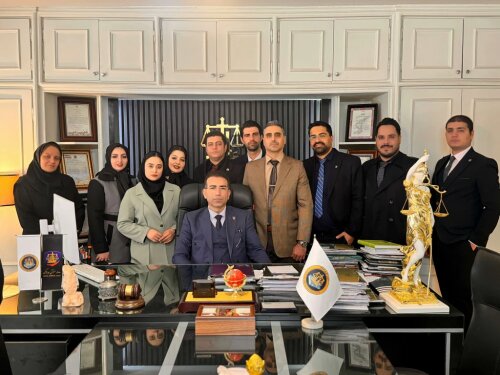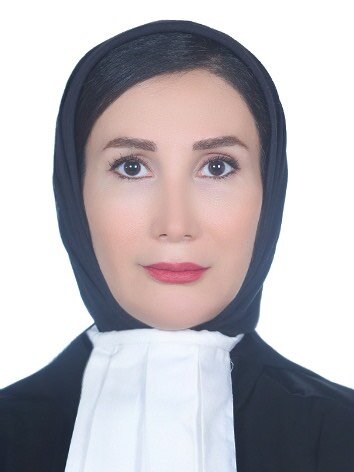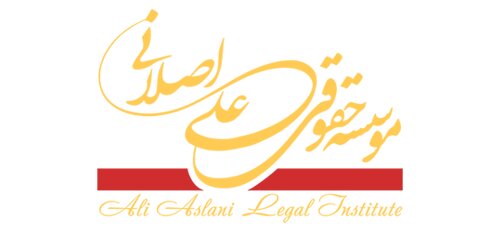Best Marriage Lawyers in Iran
Share your needs with us, get contacted by law firms.
Free. Takes 2 min.
Free Guide to Hiring a Family Lawyer
Or refine your search by selecting a city:
List of the best lawyers in Iran
About Marriage Law in Iran
Marriage in Iran is governed by the Civil Code of Iran, which outlines the legal requirements and procedures for getting married in the country. Under Iranian law, a marriage contract must be registered with the authorities to be considered legally valid. In Iran, marriage is both a religious and legal contract, with Islamic law playing a significant role in regulating marriage and family matters.
Why You May Need a Lawyer
There are several situations in which you may need legal assistance for marriage-related issues in Iran. These may include disputes over marriage contracts, property rights, divorce proceedings, child custody, and inheritance matters. A lawyer can help you navigate the complex legal system in Iran and ensure that your rights are protected.
Local Laws Overview
Some key aspects of local laws in Iran that are relevant to marriage include the requirement for marriages to be registered, rules regarding the legal age of marriage, rights and responsibilities of spouses, and procedures for divorce and child custody. Additionally, Islamic law influences many aspects of marriage, such as polygamy, temporary marriage (sigheh), and the division of assets in case of divorce.
Frequently Asked Questions
1. What is the legal age for marriage in Iran?
In Iran, the legal age for marriage is 13 for girls and 15 for boys, but individuals can marry at a younger age with parental consent and approval from a court.
2. Can foreigners get married in Iran?
Yes, foreigners can get married in Iran, but they must adhere to the legal requirements and procedures set out by Iranian law.
3. Is polygamy legal in Iran?
Yes, under Islamic law, men in Iran are allowed to have up to four wives, but they must meet certain conditions and requirements to do so.
4. What is sigheh (temporary marriage) in Iran?
Sigheh is a temporary marriage contract that is allowed under Islamic law in Iran, where a man and a woman agree to marry for a specific period of time.
5. How is property divided in case of divorce in Iran?
Under Iranian law, property acquired during the marriage is generally divided equally between the spouses in case of divorce, unless a prenuptial agreement states otherwise.
6. What is the process for registering a marriage in Iran?
To register a marriage in Iran, both parties must appear before the authorities with the necessary documents, such as identification papers and a marriage contract, and pay the required fees.
7. How does child custody work in Iran?
In Iran, child custody is usually granted to the mother until a certain age, after which the father may have custody. However, the court will consider the best interests of the child in making custody decisions.
8. What are the grounds for divorce in Iran?
In Iran, divorce can be granted for various reasons, including mutual consent, infidelity, abuse, and irreconcilable differences.
9. What rights do women have in a marriage in Iran?
Women in Iran have certain rights in marriage, including the right to receive a dowry, the right to seek divorce in certain circumstances, and the right to child custody in some cases.
10. How can a lawyer help with marriage-related issues in Iran?
A lawyer can provide legal advice, represent you in court proceedings, help you draft legal documents, and ensure that your rights are protected in marriage-related matters in Iran.
Additional Resources
For further information and assistance with marriage-related issues in Iran, you may contact the Iranian Bar Association, the Ministry of Justice, or local legal aid organizations that specialize in family law matters.
Next Steps
If you require legal assistance with marriage-related issues in Iran, it is important to consult with a qualified lawyer who is knowledgeable about Iranian family law. They can help you understand your rights, navigate the legal system, and represent your interests effectively in court proceedings. Remember to gather all relevant documents and information regarding your case before meeting with a lawyer to ensure a productive consultation.
Lawzana helps you find the best lawyers and law firms in Iran through a curated and pre-screened list of qualified legal professionals. Our platform offers rankings and detailed profiles of attorneys and law firms, allowing you to compare based on practice areas, including Marriage, experience, and client feedback.
Each profile includes a description of the firm's areas of practice, client reviews, team members and partners, year of establishment, spoken languages, office locations, contact information, social media presence, and any published articles or resources. Most firms on our platform speak English and are experienced in both local and international legal matters.
Get a quote from top-rated law firms in Iran — quickly, securely, and without unnecessary hassle.
Disclaimer:
The information provided on this page is for general informational purposes only and does not constitute legal advice. While we strive to ensure the accuracy and relevance of the content, legal information may change over time, and interpretations of the law can vary. You should always consult with a qualified legal professional for advice specific to your situation.
We disclaim all liability for actions taken or not taken based on the content of this page. If you believe any information is incorrect or outdated, please contact us, and we will review and update it where appropriate.
Browse marriage law firms by city in Iran
Refine your search by selecting a city.
















